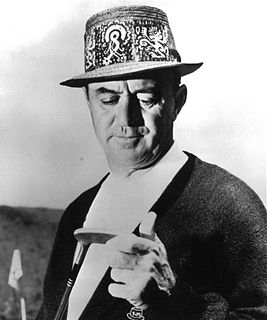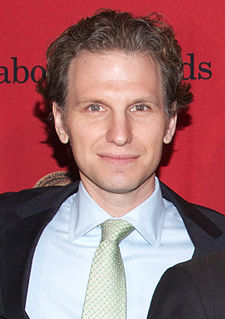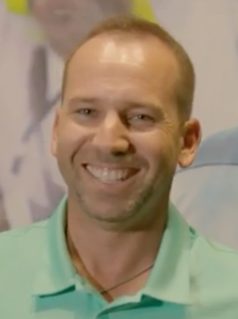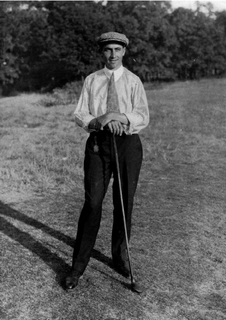A Quote by Homero Blancas
The way I putted today, I must've been reading the greens in Spanish and putting them in English.
Related Quotes
I spent ten years in London; I trained there. But because I started in English, it kind of feels the most natural to me, to act in English, which is a strange thing. My language is Spanish; I grew up in Argentina. I speak to my family in Spanish, but if you were to ask me what language I connect with, it'd be English in some weird way.
Meaning can be usually be approximated, but often by sacrificing style. When I review my translations into Spanish, that's what I'm most concerned with, reading the sentences aloud in Spanish to make sure they sound the way I want them to. To be honest, I much prefer being translated into Greek or Japanese; in those cases, you have no way of being involved, and no pressure.
We were doing the same thing. We will never have "a" Chicano English or Spanish because of regional differences. But I think that because of our bilingual history, we'll always be speaking a special kind of English and Spanish. What we do have to do is fight for the right to use those two languages in the way that it serves us. Nuevo-mexicanos have done it very well for hundreds of years, inventing words where they don't have them. I think the future of our language is where we claim our bilingualism for its utility.


































